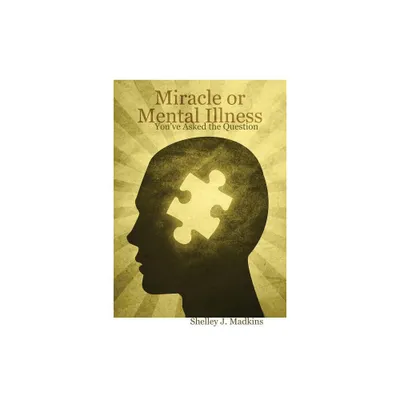Home
A History of Mental Illness
Loading Inventory...
Barnes and Noble
A History of Mental Illness
Current price: $20.95


Barnes and Noble
A History of Mental Illness
Current price: $20.95
Loading Inventory...
Size: OS
*Product Information may vary - to confirm product availability, pricing, and additional information please contact Barnes and Noble
A History Of Mental Illness is really a two part project or process. The first part is really a memoir of the author's experience, from a psychiatric as well as psychological set of perspectives. The author has suffered from bipolar illness since the age of 21; he is now 65 years of age. One of the main themes the author deals with is his involvement in past life regression. From that set of experiences the author discovered that he served as a Nazi SS Captain by the name of Hans Theodor Schmidt; he served at Buchenwald prison camp from 1942-1945. For his war crimes he was eventually condemned to death and was hung on June 7th, 1951. (The author's birthdate is June 2, 1955). Another psychological approach which benefitted the author was cognitive behavioral therapy, among several others. However, the main emphasis has to be on the psychiatric perspective in terms of the various medications which allowed the author to remain free of hospital.
Initially, at age 21 the author was diagnosed with having bipolar illness. At that time, 1976, the author was prescribed a whole set of antidepressants which failed in terms of recovery; thus the author was given 9 ECT (shock therapy) which were successful at least for several months and allowed the author to leave the hospital and work a full time job. Throughout the author's life, from 1976 through until 1997, the author suffered mostly from chronic depression and on the average had to be hospitalized every several years. The author spent an entire year at the North Dakota State Hospital in 1996 and except for one more manic episode during July of 1997, has been free of any hospitalization since that time. What works for me? Every one, this author would submit, really has to be their own genie in the bottle; there is no path or highway to heaven in terms of surviving mental illness, in my case bipolar illness. This author spent many years in therapy, and is now taking a great many medications; some psychotropic, others not. This author hopes that whoever reads this memoir can begin to feel a sense of hope, and hopefully a life of gratitude.


















